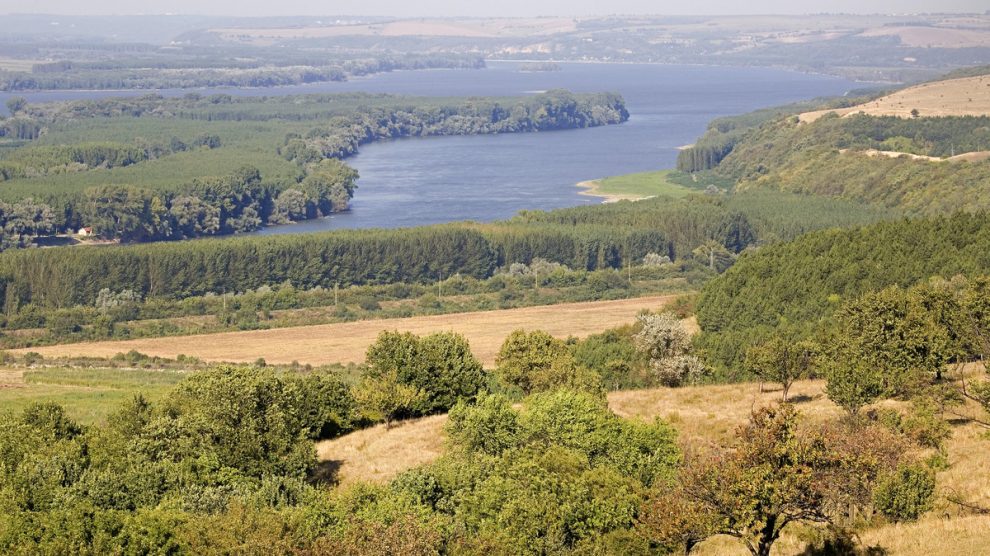Its backers claim it will help increase energy security and improve links between Romania and Bulgaria, but ecological NGOs believe the environmental cost of a hydropower plant on the Danube is too high.
A decades-old hydropower project on the Danube, added to the European Commission’s priority list for infrastructure investment, may breach EU directives, WWF, CEE Bankwatch Network and 36 other environmental organisations across Europe claimed this week.
The Turnu Măgurele – Nikopol Hydraulic Structures Assembly (TMNHSA) would, it is claimed, harm communities, economies, and critical ecosystems, and waste enormous sums of EU tax payers´ money while undermining EU-funded conservation gains. It also threatens the survival of iconic species, including the critically-endangered sturgeon.
The environmental organisations now want EU decision-makers to use their mandate to remove the project from the priority list.
- In the Western Balkans, government failures are increasing coal pollution
- Falling demand slows Europe’s dash for LNG
- The challenge of financing low-carbon, climate-resilient investments in emerging economies
The project planned for the Lower Danube in Romania and Bulgaria threatens to submerge vast areas of land, displacing over 100 towns and villages along a 280 kilometre stretch of the river.
Its backers, the Bulgarian National Electricity Company (NEK) and Romania’s Hidroelectrica, counter that the project, which will have an electricity generation capacity of 4,400 GW per year and would cost around six billion euros to complete, could help with defence from flooding, increase energy security, and improve links between Romania and Bulgaria: a new Danube road crossing comprises part of the project.
“This is a trans-frontier project of which electricity generation is just one benefit,” said Martin Georgiev, NEK’s director, earlier this year.
Environmental impact
Nevertheless, the dam’s reservoir is expected to cause extensive flooding of farmland, homes, and fishponds, affecting communities in both countries. The project is likely to entail the relocation of port infrastructure and of thousands of citizens, disrupt agricultural production, fisheries, inland waterway transport, and tourism, and pose risks to the nuclear power plant (NPP) in Kozloduy—the only NPP in Bulgaria.
“This project, designed over forty years ago, has not found investors since then because of its huge costs compared to relatively low energy gains as well due to its enormous environmental impact,” says Andrey Ralev of CEE Bankwatch Network, the largest network of grassroots, environmental and human rights groups in Central and Eastern Europe.
“It will undo conservation efforts worth millions of euros aimed at protecting biodiversity and restoring the Danube.”
“The majestic Danube sturgeons are a symbol for the Danube River and a natural heritage of European importance,” adds Beate Striebel-Greiter, WWF’s Global Sturgeon Initiative Lead.
“Building this dam will block their migration route and destroy their last spawning grounds. This might be the death knell of these iconic species. Decades of conservation efforts will be thrown overboard and the EU will have species extinctions on its hands.”
Contradiction with EU policies and laws
WWF and Bankwatch argue that the project violates key environmental commitments and EU legislation, such as the Habitats Directive and the Water Framework Directive, which aims at bringing freshwater ecosystems into good conditions and preventing deterioration. This project would significantly alter the Danube’s hydrology, causing irreversible damage to the river’s natural processes.
While the EU has prioritised renewable energy production as part of its transition to a low-carbon economy, the rising frequency of low water levels of the Danube will lower energy output of this hydropower plant.
NGOs believe that there are much better options than the TMNHSA project, in particular wind and solar power installations, for which the region provides sufficient space outside of high biodiversity areas.
“The energy produced by this hydropower plant is not worth the cost to biodiversity, community livelihoods, or noncompliance with EU regulations,” says Ralev. “Renewable energy must be pursued without causing destruction of natural habitats.”
Time to act
The NGOs are now urging the European Parliament to ask for a two-months extension of the scrutiny period of the delegated act from the European Commission, which adds the Turnu Măgurele – Nikopol Hydraulic Structures Assembly project in the List of Renewable Energy Cross-border Projects (CB RES) eligible for EU funding under the Connecting Europe Facility programme.
This extension would allow the European Parliament to properly assess the impacts of this project. If not, the delegated act will be formally adopted on September 24. Project approval would undermine the EU’s commitment to biodiversity protection and climate resilience, setting a dangerous precedent for future infrastructure developments.
“As we face a biodiversity and climate crisis, projects like this one are a step backward,” says Irene Lucius, regional conservation director of WWF Central and Eastern Europe.
“We must prioritise sustainable energy solutions that protect both nature and people.”
Unlike many news and information platforms, Emerging Europe is free to read, and always will be. There is no paywall here. We are independent, not affiliated with nor representing any political party or business organisation. We want the very best for emerging Europe, nothing more, nothing less. Your support will help us continue to spread the word about this amazing region.
You can contribute here. Thank you.


